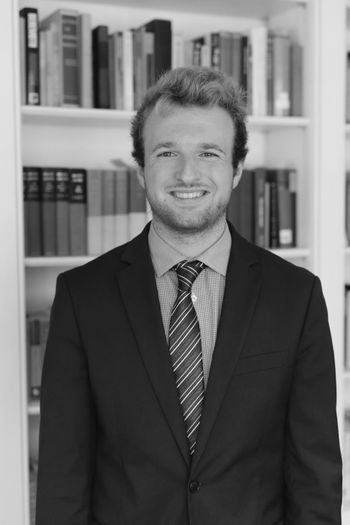‘LESBIAN VAMPIRES’: U of New Mexico course looks at ‘Queer Cinema’: EXCLUSIVE
The course syllabus, obtained by Campus Reform, asks: ‘Queerness is generally understood in terms of inclusion and visibility, but can we read queerness as a question of filmic structure?’
One of the course readings, 'Lesbians Who Bite,' states: ‘I too have regarded the lesbian vampire with a degree of distrust.’
A University of New Mexico (UNM) course promises to teach students to examine “queerness” as “a question of filmic structure,” and will have students read about “lesbian vampires.”
The fall semester course, “Queer Cinema: Form and Fantasy,” is taught by UNM’s Women, Gender & Sexuality Studies Program. The course syllabus, which Campus Reform obtained through a public records request, asks: “Queerness is generally understood in terms of inclusion and visibility, but can we read queerness as a question of filmic structure?”
The syllabus description continues: “By rigorously re-working cinematic conventions through genre-confusion, non-narrativity, abstraction, discontinuity editing, and the foregrounding of the filmic apparatus, filmmakers have explored parallels to queer theory’s commitments to desire, dis/identification, non/normativity, deconstruction, and anti/sociality.”
Those who complete the course will allegedly be able to “[d]emonstrate the importance of gender, race, ethnicity, and class in the formation of sexual identities and representations,” [i]dentify forms of collective and individual resistance to the governance of sexuality,” and “[r]elate the course concepts to their personal experience.”
On Sept. 10, students discussed how the work of filmmaker Cheryl Dunye deals with “the historical erasure of black lesbian subjectivity.”
By Oct. 1, students will be expected to read Ellis Hanson’s essay, “Lesbians Who Bite,” which discusses “lesbian vampires.”
“I am struck by a certain covert attraction to the vampire myth, a certain identification with the creatures of the night, among even the most canonical of feminist theorists. I too have regarded the lesbian vampire with a degree of distrust,” Hanson writes.
On Oct. 29, students will discuss “How have women filmmakers explored female pleasures and lesbianism[?].”
The course syllabus also informs students that certain class materials demand matureness: “Be aware that queer cinema often engages aesthetic, social, sexual, and political topics that will require maturity and sophistication.”
Eva Hayward, the listed faculty member for the course, has “developed courses on Feminist Animal Studies, Ecofeminism, and Sexuality & Aesthetics” at the University of Arizona.
As of publishing time, Hawyard’s UNM faculty page claims Hayward is also an assistant professor in Gender and Women’s Studies at the University of Arizona, but the University of Arizona told Campus Reform that Hayward “left the University of Arizona a couple years ago and no longer teaches here.”
Hayward’s newest book, “SymbioSeas,” examines “underwater representations of marine organisms to think about the interplay of art and science, sex and species, mediation and sensation.”
The University of Wisconsin–Madison is also offering courses related to the performing arts and LGBT issues, including “Gender, Sexuality, and Performance: Madison Trans and Queer Performance Activism,” and “Queer & Trans Cinema.”
Campus Reform has contacted Eva Hayward and the University of New Mexico for comment. This story will be updated accordingly.

